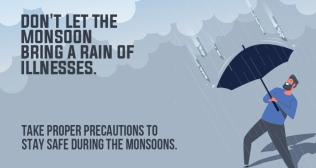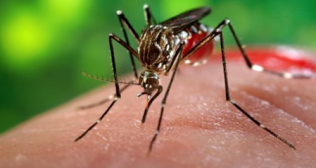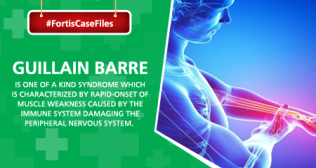
Sweating at Night? 9 Possible Reasons and Effective Relief Tips
Waking up in the middle of the night to find yourself, your pajamas, and your sheets drenched in sweat is an incredibly uncomfortable and disruptive experience. While it’s normal to sweat a bit if your bedroom is too warm or you have too many blankets, true night sweats are more intense. They are recurring episodes of heavy sweating during sleep that are strong enough to soak through your bedding, regardless of the room's temperature.
This kind of sweating while sleep can be distressing and often leaves people wondering about the cause. Is it just a nuisance, or is it a sign of an underlying health issue? Understanding the common reasons for night sweats is the first step toward finding a solution and getting back to a restful night's sleep. This guide explores nine of the most frequent causes and offers practical tips for relief.
1. Hormonal Changes and Fluctuations
Hormones are powerful chemical messengers, and when their levels shift, they can have a major impact on the body's temperature regulation.
- Menopause and Perimenopause: This is perhaps the most well-known cause of night sweats in women. The "hot flashes" that are common during the day can also occur at night. These are caused by fluctuating estrogen levels, which affect the hypothalamus; the part of the brain that acts as the body's thermostat.
- Hormonal Shifts in Men: Men can also experience night sweats due to hormonal changes. Low levels of testosterone, a condition sometimes referred to as "male menopause" or andropause, can trigger them.
2. Medications
Many common prescription medications can cause excessive sweating in night as a side effect. The body's reaction to certain drugs can interfere with temperature control. Some of the most common culprits include:
- Antidepressants: A certain class of antidepressants is a very frequent cause of medication-induced sweating.
- Diabetes Medications: Drugs that lower blood sugar can sometimes cause it to drop too low at night, leading to sweating.
- Hormone-Blocking Drugs: Medications used to treat certain types of cancer, such as breast and prostate cancer, can induce hot flashes and night sweats.
3. Infections
When your body is fighting off an infection, your internal temperature often rises to create a less hospitable environment for germs. This is what causes a fever. Your body then sweats to try and cool itself down.
- Tuberculosis: Historically, night sweats were considered a classic symptom of tuberculosis.
- Other Infections: Any infection that causes a fever, from a simple flu virus to more serious bacterial infections like endocarditis (an infection of the heart valves), can lead to sweating in sleep.
4. Anxiety and Stress
Your mental and emotional state can have a powerful physical effect. When you experience stress or anxiety, your body activates its "fight-or-flight" response, releasing hormones like adrenaline. This can lead to an increased heart rate, rapid breathing, and, you guessed it, sweating. If you go to bed feeling worried or stressed, your mind can trigger this physical response even while you sleep.
5. Sleep Disorders
Certain sleep disorders can be a direct cause of sweating while sleep.
- Obstructive Sleep Apnea (OSA): This is a condition where breathing repeatedly stops and starts during sleep. Each time breathing stops, the body is starved of oxygen, triggering a stress response to wake the person up just enough to take a breath. This repeated effort and stress throughout the night can lead to significant sweating.
6. Hypoglycemia (Low Blood Sugar)
For people with diabetes, particularly those who take insulin or certain oral medications, blood sugar levels can sometimes drop too low during the night. This condition, known as nocturnal hypoglycemia, triggers the release of adrenaline, which causes sweating, shakiness, and nightmares.
7. Gastroesophageal Reflux Disease (GERD)
While not one of the most common causes, some people with GERD report that night sweats are one of their symptoms. The exact link is not fully understood, but it may be related to the body's stress response to acid refluxing into the esophagus during the night.
8. Certain Cancers (A Rare Cause)
It is important to state that this is one of the least likely reasons for night sweats, but it must be mentioned. In some cases, persistent and drenching night sweats can be a symptom of certain cancers, most commonly lymphoma. In these situations, the night sweats symptoms are usually accompanied by other "B symptoms," such as an unexplained fever and significant, unintentional weight loss.
9. Idiopathic Hyperhidrosis
Sometimes, after a thorough medical evaluation, no specific cause can be found. This is known as idiopathic hyperhidrosis, a condition where the body simply produces excessive sweat without any identifiable underlying medical reason.
Effective Tips for Finding Relief
If you are experiencing excessive sweating in night, there are several practical steps you can take to improve your comfort.
- Optimize Your Sleep Environment: Keep your bedroom cool and well-ventilated. Use a fan or open a window.
- Choose Breathable Bedding: Opt for sheets and blankets made from natural, breathable fibers like cotton, linen, or bamboo.
- Wear Light Sleepwear: Wear loose-fitting pajamas made of light, moisture-wicking fabric.
- Avoid Triggers Before Bed: Limit your intake of alcohol, caffeine, and spicy foods, especially in the hours leading up to bedtime, as they can all trigger sweating.
- Manage Stress: Practice relaxation techniques like meditation, deep breathing exercises, or a warm (not hot) bath before you go to sleep.
When to See a Doctor
While occasional sweating in sleep is normal, you should consult a doctor if your night sweats are:
- Regular and persistent, disrupting your sleep.
- Accompanied by other concerning night sweats symptoms like fever, unexplained weight loss, or pain.
- So severe that you consistently have to change your bedding.
Your doctor can help determine the cause and recommend the appropriate course of action. By paying attention to your body and seeking help when needed, you can find the reason behind your night sweats and work toward a more comfortable, restful night.
Frequently Asked Questions
1. Can diet cause night sweats?
Yes, certain foods and drinks, particularly alcohol, caffeine, and spicy foods, can raise your body temperature and trigger sweating when consumed close to bedtime.
2. Are night sweats a sign of a heart problem?
While not a common symptom, night sweats can sometimes be associated with heart infections or be a side effect of heart medications. It's one of many possibilities a doctor might consider.
3. Do men experience night sweats too?
Absolutely. While most commonly associated with menopause in women, men can experience night sweats due to low testosterone, stress, infections, and other medical conditions.
4. Can stress alone cause drenching night sweats?
Yes, high levels of stress and anxiety can trigger a significant physiological response, leading to episodes of heavy sweating during sleep.
5. What is the difference between sweating from being hot and having night sweats?
Sweating from being hot is a normal reaction to an external cause (like too many blankets). True night sweats are episodes of severe sweating that occur without any obvious external reason and are caused by an internal process.


















